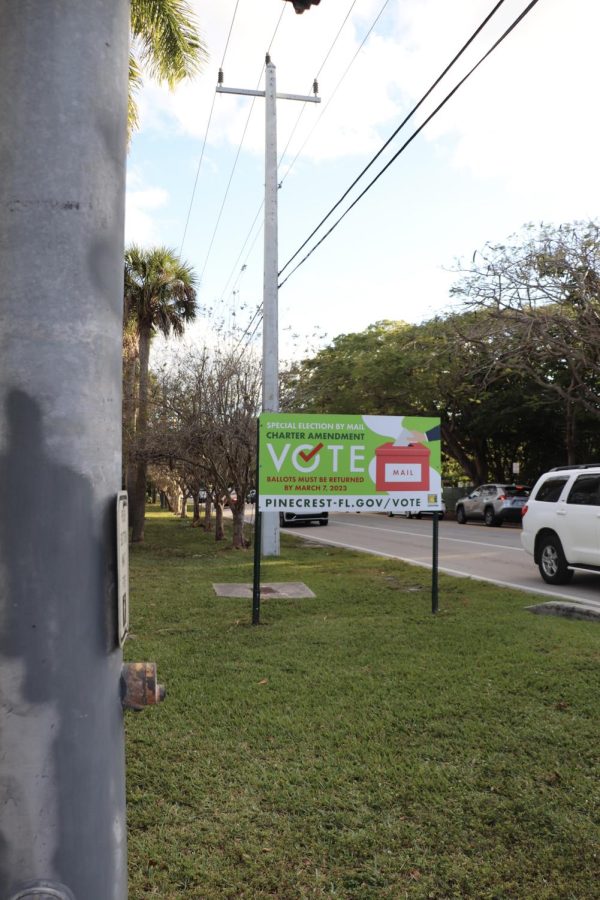All You Need to Know About the Village of Pinecrest Special Election
February 14, 2023
For anyone driving around Pinecrest within the last month, it is guaranteed they have noticed countless yard signs with one of two things written on them: “Vote NO” or “Vote YES” by March 7. But what exactly is this special election?
The election refers to amending the Pinecrest Charter (constitution). The vote requires that 60% of voters approve an amendment to the zoning code or land development regulations. This allows the minority more power compared to the current system where only 50% plus one is necessary to win. Amendments that would trigger an election include creating new zoning districts, increasing population density and increasing lot coverage.
“60% or more have to ratify what [the] council did in order for it to go into effect. So if the majority of voters, 59%, want to do what council wants but 41% say no the minority wins,” Pinecrest Village Manager Yocelyn Galiano said.
Currently, the system requires a council of elected officials to decide on changing regulations. The council members must recuse themselves from voting on issues if there is a conflict of interest. Citizens are also able to record their input via public hearings. This system has been in place since the founding of Pinecrest 27 years ago.
Economically speaking, questions have arisen over the price point if the reform is passed. A highly conservative estimate of each required referendum election would cost $67,000. This is considered a conservative estimate due to the costs for this election being around $115,000– not including staff costs. The price point includes the needed materials for the mail-in-election and outreach/educational expenses.
The special election holds significance to students who are newly or soon to become eligible to vote because the Charter Amendment affects the city’s entire population. It was originally proposed because of anti-mixed-use residential housing areas that were more affordable and geared towards being accessible to people of all ages and incomes.
“It’s important that young adults that are of voting age hopefully get engaged and educated on the subject so they understand what’s at stake. A lot of the stuff that’s happened has come about because of some sentiment in the community that is anti-allowing residential mixed-use on US1 which was really geared towards being able to provide living opportunities for people throughout their life cycles,” Galiano said.









